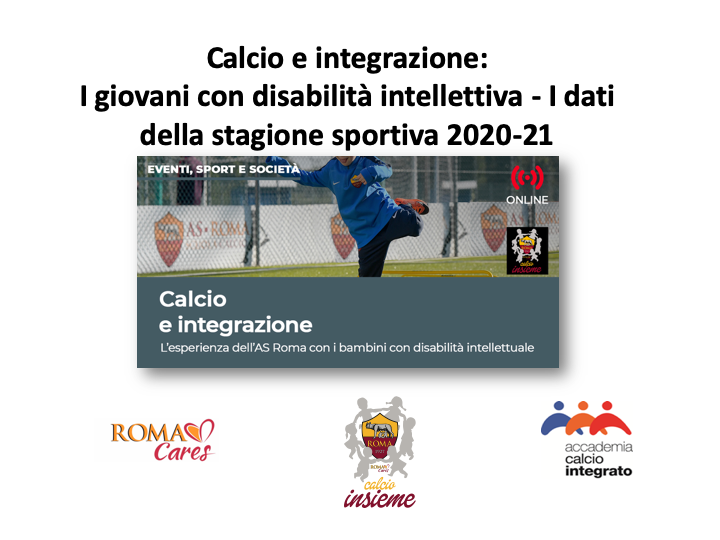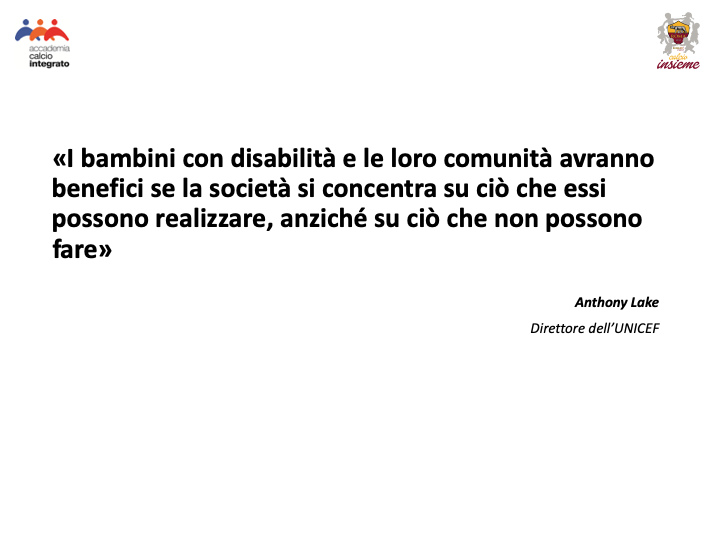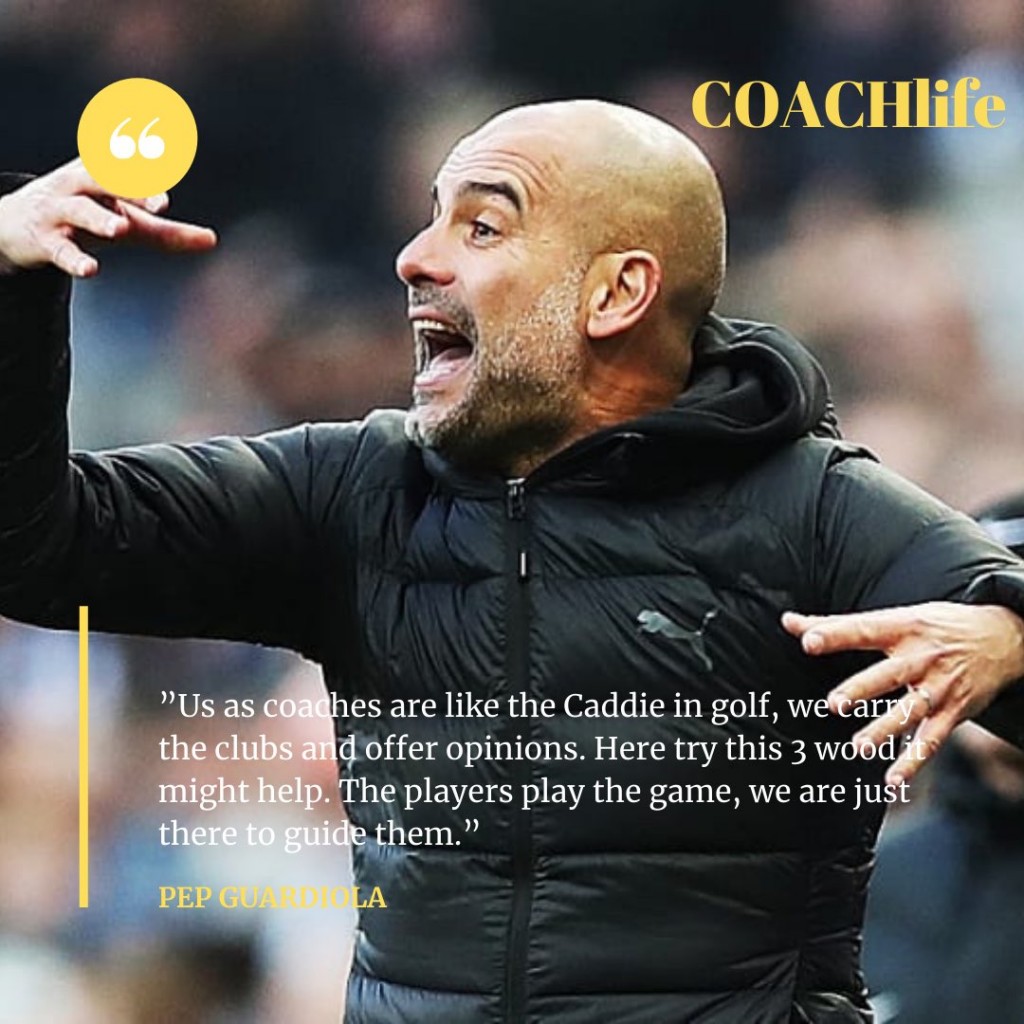The activities of our “Calcio Insieme” project began this week. We are now in our seventh year of activity and certainly thinking back to the first training sessions of 2015 brings to mind the fear we had in starting this program.Although we had prepared with a 32-hour training period, we were quite concerned about the responsibility we had taken on with families and these young people with autism. In addition, we had also made it our goal to document not only the activity we had done but also the motor and psychological improvements. The question we asked ourselves most frequently was: will they improve through sporting activity or are two hours a week just a drop of water in the desert represented by their limitations.
The work done in recent years has shown that the planned path was correct and despite the obvious difficulties we have come to work with many children who have become adolescents and continue to play with us. We have documented with several scientific studies the results obtained, from which we can start again to continue to improve our proposal.
This week we met to start the new 2021/22 sports season. The groups are divided by age and according to motor and psychosocial skills. With young people with greater difficulties in these areas, the resumption of activity is more complicated, since it is likely that they have not continued with outdoor activities and structured in a specific way as those of the training we propose. Each session is 50 minutes, it is for them a demanding period of constant attention to the coach or psychologist, in which they must respect the rules to which are added motor and cognitive-affective demands to which they are not accustomed. Let’s also say that it takes a lot of attention and professional passion on the part of the operators who stimulate these youngsters to carry out activities, which the parents who observe them are impressed with in a positive way. Often, they do activities, such as passing the ball, that they only do with great difficulty with their parents and that may have been abandoned because of the frustration they generate in adults.
This type of young people requires and needs an activity 1a1, they could not learn and persevere in the commitment if not in the presence of a figure totally dedicated to them, which respects the moments of pause and fatigue me that at the same time leads them to perform a specific and differentiated motor activity.
We move in this way, because we believe that it is the only possible way if we want to carry out a program that produces new learning, in relation to sports and psychosocial aspects. This is our challenge that is the same every year, we are convinced that we can get significant results, which could be even better if it were possible to increase the number of hours per week devoted to sport. Of course, a large number of professionals is required to carry out this activity. For this reason, the field team is composed only of college graduates.
With boys and girls over the age of 13 we have built groups in which it is possible to play soccer and begin, after this long period of pandemic, tournaments and games. With them the training is very similar to that conducted with typically developing kids and this year we will see how far we can go as an AS Roma soccer team.








